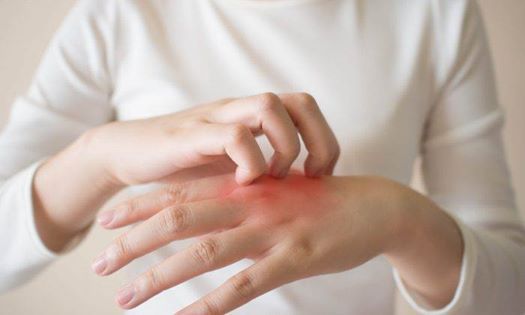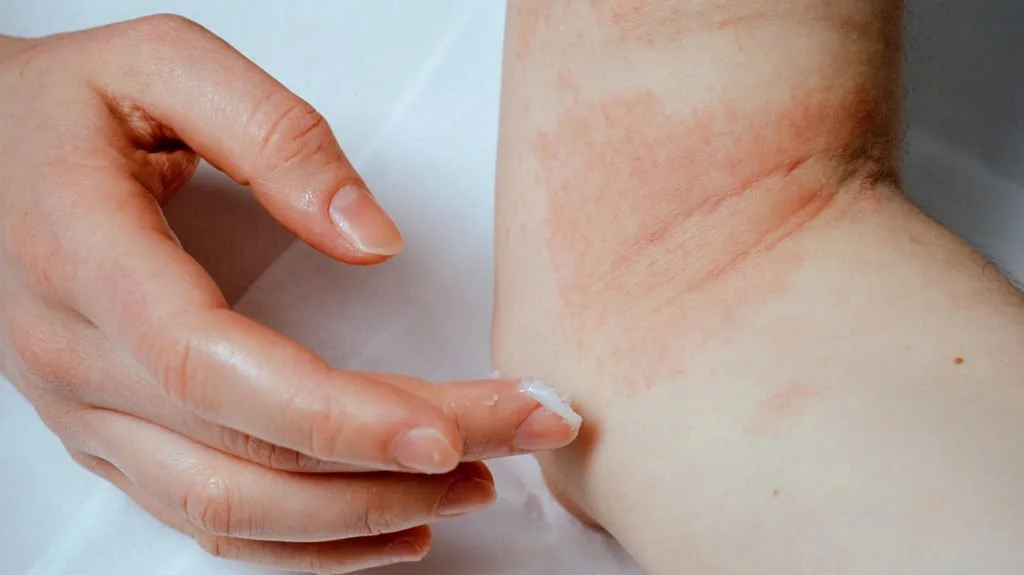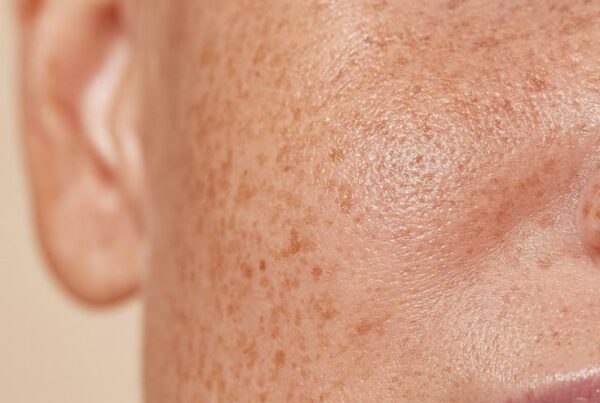14 September marks World Atopic Eczema Day – a day dedicated to raising awareness of a disease that places a heavy multidimensional burden on patients and caregivers alike, writes pharmacologist and Sanofi Medical Advisor Dr Dwayne Koot.
The theme for this year’s global campaign is #InsideAtopicEczema. It looks at the five major burdens of the disease:
- extreme physical pain and itch
- burden on families and caregivers
- the burden on finances
- burden on mental health
- the burden of daily management
What is atopic eczema?
Atopic eczema is a condition that is suffered by many worldwide.1 It is also known as Atopic Dermatitis (AD). It is one of the more common forms of eczema that can be particularly difficult to resolve. Atopic eczema is a chronic, inflammatory skin disease with unpredictable flare-ups, which results in part from an over-active immune system leading to problems with the skin’s barrier.2
Inflamed skin and intense itching are associated with moderate-to-severe atopic eczema can occur all over the body.2 Commonly affected areas include the knees, elbows, face, neck, feet, hands, and wrists.3 The disease is highly variable and ranges from mild to severe, requiring incremental management approaches.
Despite common misconceptions that atopic eczema is ‘just’ a skin condition, living with this disease goes far beyond the skin, and it impacts many aspects of a patient’s health, life and relationships.
In fact, a recent population-based study in the United States has shown that the impact of moderate-to-severe atopic eczema on the overall health of adult patients is comparable to other serious chronic disorders such as heart disease. The patient’s burden of the itch is complex and linked to other symptoms including pain, sleep, and emotional disturbance.

Orawan Pattarawimonchai/Shutterstock
Atopic eczema requires an in-depth understanding and consideration of appropriate treatment strategies. Some people with moderate-to-severe atopic eczema continue to experience debilitating symptoms despite the consistent application of moisturizers and the use of prescription topical therapies.
Atopic eczema is a condition that can take control of a person’s life. It can cause serious, ongoing sleep disturbances, symptoms of anxiety and depression, and feelings of isolation and helplessness. Many people feel that their atopic eczema negatively impacts many aspects of their lives and influences important life decisions – socially and professionally.
Burden of atopic eczema
Among skin conditions, atopic eczema is a leading cause of the global burden of disease.4 The five major burdens of the disease are outlined below.5
1. Extreme itch and physical pain
Itch is a misunderstood and underestimated burden of atopic eczema. Many patients describe the itch as all-consuming and worse than pain. This itch is often accompanied by pain caused by scabbing and open wounds from uncontrollable scratching, inevitably leading to skin infections.5
2. Burden on family and caregivers
Parents of atopic eczema patients need to spend hours every day caring for their child’s skin. Time is lost on repeated doctor visits. Also, spouses of patients need to provide continuous support and an empathetic understanding of the disease presentation.5
3. Burden on finances
Atopic eczema patients and caregivers need to cover the costs of doctors, specialists, expensive prescribed or over-the-counter medications, wet wraps, and topical treatments. Patients can also experience a loss of wages if they are unable to work as a result of their condition.5 Further sleep disturbances contribute to a lack of productivity and poor focus.
4. Burden on mental health
There is a high level of depression and frustration for patients with atopic eczema compared to other skin diseases. Patients are expected to perform at a regular level (at work, school, and in life) because they are experiencing ‘just eczema’.5
5. Burden of daily management
Topical treatments to help manage atopic eczema are burdensome as they need to be applied every day. This may take a lot of time. Patients need to be careful of food choices to avoid flare-ups. They should also look out for which soaps, fabrics, and sanitizers to use.
How does one manage atopic eczema?
Gentle skincare and the frequent application of liberal amounts of moisturizers2 are very important. This is especially in the management of milder cases of atopic eczema. In cases of more severe eczema, dermatologists may prescribe topical therapies, which have rapid, localized anti-inflammatory effects.2 This calms the flare-ups and helps break the itch-scratch cycle.2
Utilizing topical creams and ointments of appropriate potency as maintenance therapy to prevent flares is a further strategy to discuss with a healthcare professional. Escalation to a trial of phototherapy or a systemic medicine is typically indicated where topical treatments are not effective.
Biologic therapy is the most recent systemic option for adults with moderate-to-severe atopic eczema who are not controlled by topical steroids or who cannot use them. Biologics are innovative targeted medicines that specifically block the drivers of inflammation.
Uncontrolled moderate-to-severe atopic eczema can be incredibly difficult for patients and their families, seriously impacting daily life. However, diligently following the general rules of gentle skin care, avoiding environmental triggers, moisturizing often, and seeking medical advice can help patients achieve greater control and live a better quality of life. Our understanding of the disease has increased tremendously over the last decade. Obtaining sustained control is the goal that can rectify many associated psychosocial issues.
Conclusion
We hope to raise greater awareness of the burden of atopic eczema and its impact on daily quality of life. We also wish to encourage appropriate steps to be taken towards getting the disease controlled at an individual patient level.
If you or someone you know has been diagnosed with atopic eczema, speak to your doctor or healthcare provider about suitable treatment options.
About the author
 Dr. Dwayne Koot is a medical advisor at Sanofi
Dr. Dwayne Koot is a medical advisor at Sanofi
He has a strong research background in immunology. Sanofi has been present in South Africa for 46 years and is ranked the no.1 multinational pharmaceutical company with the third largest local manufacturing facility in Waltloo, Pretoria.
The site is recognized as a global center of excellence for the production of anti-tuberculosis medicine, which is exported to 13 countries including Europe, Australia, the UK, and Brazil. In addition, the site produces antibiotics, drugs for the epileptic disease, and medicines for the central nervous system. The site is also a dedicated complementary medicine facility for the production of our consumer health product range.
References
- Barbarot S, et al. Epidemiology of atopic dermatitis in adults: Results from an international survey. Allergy 2018;73(6):1284-1293.
- National Eczema Association. Atopic Dermatitis. [17 Aug 2020]. Available from: https://nationaleczema.org/eczema/types-of-eczema/atopic-dermatitis/
- Editorial Team. What Are Common Areas That Atopic Dermatitis Affects? Available from: https://atopicdermatitis.net/affected-areas
- Hay RJ, et al. The global burden of skin disease in 2010: an analysis of the prevalence and impact of skin conditions. J Invest Dermatol. 2014;134(6):1527-1534.
- Eczema Support Australia. 2022. 5 burdens of eczema that impact all aspects of life. Available from: https://eczemasupport.org.au/5-burdens-of-eczema-that-impacts-all-aspects-of-life/



![women [longevity live]](https://longevitylive.com/wp-content/uploads/2020/01/photo-of-women-walking-down-the-street-1116984-100x100.jpg)










